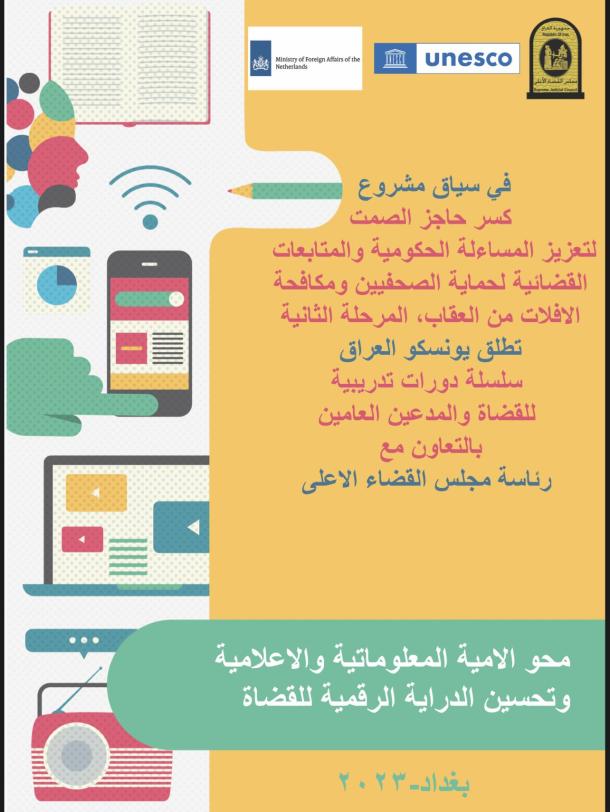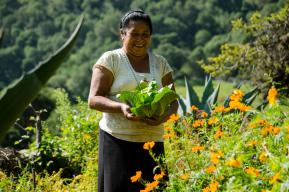Article
UNESCO enhancing capacities of Iraqi Judges and Public Prosecutors on Freedom of Expression

UNESCO Iraq Office commenced the first training session for members of judicial bodies and public prosecutors' offices in Baghdad and the provinces. This training program will continue until mid-next month.
The training courses are a result of collaborative efforts between the High Judicial Council of Iraq and UNESCO Iraq, aimed at enhancing the understanding and capacities of the Judges and Public Prosecutors on freedom of expression and ensuring the safety of journalists. These training courses are being conducted under the Breaking the Silence project, funded by the Netherlands Embassy in Iraq.
A total of 130 Judges and Prosecutors, evenly nominated from all the Governorates will participate in four specialized training sessions scheduled from mid-May to mid-June. These sessions will cover the latest judicial standards pertaining to freedom of expression, digital literacy, and the improvement of digital awareness.
The training sessions encompass the development of a national judicial mechanism to ensure the safety of journalists and eliminate impunity. They also focus on incorporating freedom of expression standards, adopting the latest international systems for addressing digital and information crimes, and enabling the Iraqi judiciary to plan the establishment of a national mechanism for examining digital evidence and resolving such crimes to ensure justice and societal security.
These endeavors align with UNESCO's global plan to develop comprehensive guidelines for regulating the Internet and digital platforms, as well as adopting new standards for online freedom of expression. The Iraqi judiciary's participation in this global effort is expected to result in the submission of its proposal to UNESCO by the end of July this year. The goal is to contribute to the World Internet Summit for Internet, scheduled for October 2023.
An encouraging outcome of UNESCO's efforts is the inclusion of the Iraqi judiciary as a member of the International Council of Judges for Freedom of Expression, established by UNESCO. The council currently boasts a membership of 25,000 judges from around the world.








